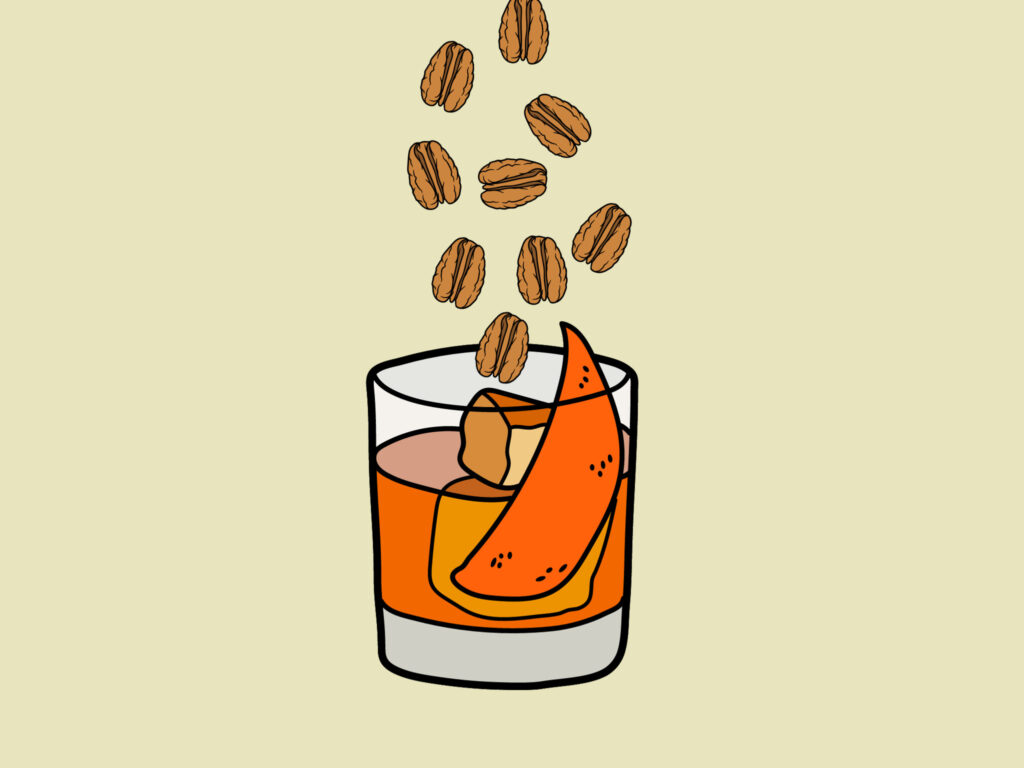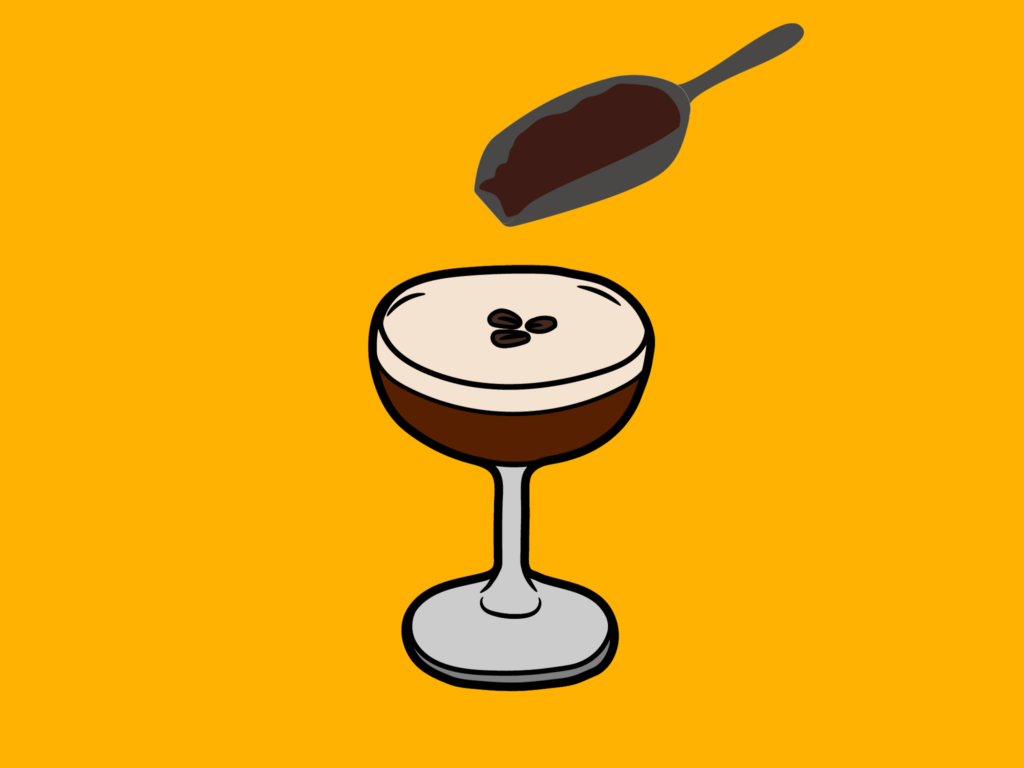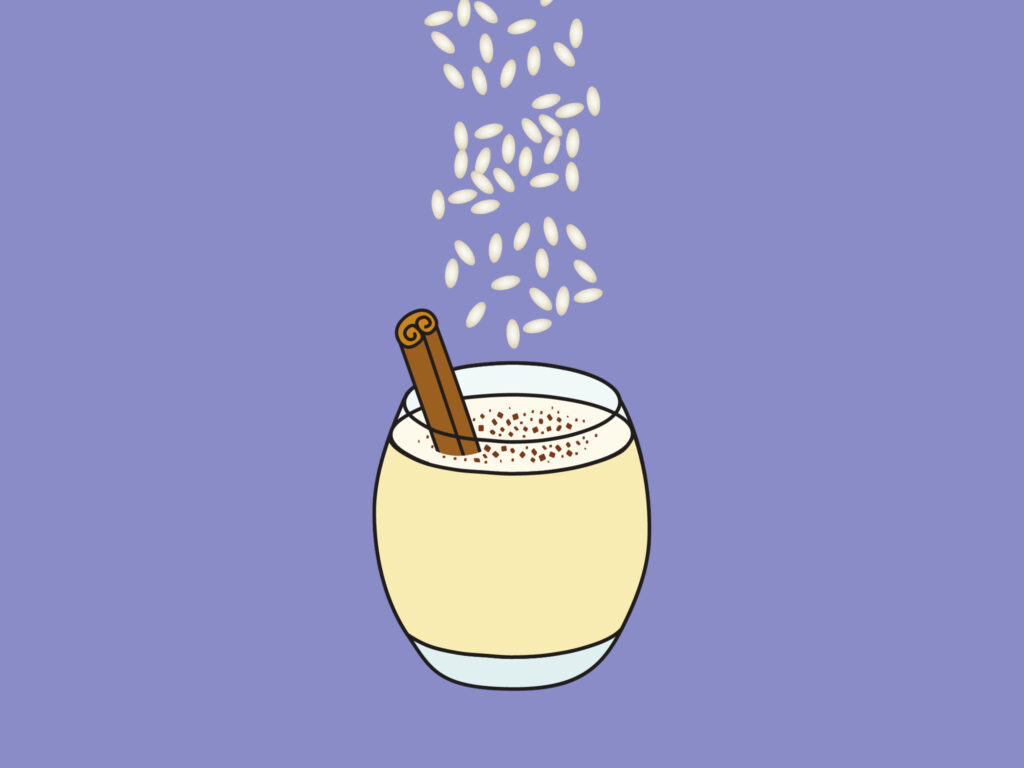Zero-Waste Christmas: 4 Gourmet Cocktails (& Mocktails) You Can Start Making Now
10 Mins Read
It’s only Thanksgiving and we might be hitting a tipping point with Christmas content already, so this is probably three months too late – but in case you’re like me and still planning your Christmas menu, here are a few cocktails (both boozy and non-alcoholic) that will spruce things up come Yule.
The other day, I was surfing the internet and – as you do – came upon a thumb-stopping stat. I’ve known for a long time that a third of all food across the world is wasted (and that my continent produces 50% of it) and that it’s worth about $1tn. But these numbers never really hit home unless you measure human impact, at least for me.
Anyway, say we, you know, didn’t waste so much food (just a thought) – did you know how many people we could feed with all that food loss? Two billion. Two fucking billion. That’s all of India, the US and Brazil, and then some change.
There are myriad reasons people waste food, and I’m yet to find a good one. And it gets worse on certain days of the year, like Christmas when the UK alone throws away 54 million excess plates of its food – enough to feed 80% of its population.
But excess is synonymous with Christmas. We eat loads, talk loads, drink loads. On that last one, alcohol isn’t super efficient either. For example, for every litre of tequila, about 5kg of pulp and 10-15kg of acidic waste are left over, both of which can contaminate soil and water supplies in its production regions.
I’m not saying we shouldn’t enjoy a drink, but how can we make our Christmas drinks better for the planet? What if there were a way to use up as much of each ingredient as possible, and produce zero-waste cocktails with zero compromise on flavour?
If you’re really into your food, you’ll know there are tons of things you can do to elevate zero-waste recipes. Food waste is among the climate solutions that can reduce the most emissions – so maybe let’s have our beverages and drink them too this year?
Here are a few zero-waste Christmas cocktails (with non-alcoholic swaps) that’ll leave you feeling light and your impact on the environment even lighter. Since These are all time-intensive recipes, as they rely on different techniques for better flavour – the payoff is massive, though, as you’ll mostly end up with spirits that can be used for many other cocktails too. Since Christmas is a month away, you can start working on these now.
(The quantities for certain ingredients are more instinctive than, erm, scientific – but that’s the point! Feel free to play around.)
Pecan-butter-washed Old Fashioned

Starting with the all-timer. I love fat-washing, it brings such a complex note and mouthfeel to a drink, and it just feels… elegant?
Old Fashioneds have been back in fashion ever since Mad Men took over our screens in the late 00s, and now there are so many versions of it, it can be head-spinning. Let me spin your head further with a fat-washed version.
Fat washing is a technique where you use fat to infuse flavour into a spirit (but it doesn’t have to be booze), and you ‘wash’ (separate) the fat once the infusion is done. It’s pretty neat. Many bars do this via a sous-vide machine – since most of us don’t have one at home, there are two other ways that are equally effective (if slightly more time-consuming). One is freezing, and the other is just letting time do its thing.
Another problem with fat washing is that a lot of the time, the leftover fat is thrown away – for no good reason! And as for Old Fashioneds, the customary orange peel is gorgeous, but I’ve personally seen people throw away a perfectly good orange after peeling it all.
What you’ll need: Islay Scotch (or another smokey whisky), pecans, light muscovado sugar, walnut and orange bitters (or whatever you fancy), a cinnamon stick and an orange.
How to make it: Take 250g of pecans and roast them in the oven at 165°C/330°F for 12-14 minutes. Transfer to a food processor and blend until the oils release and it turns into smooth pecan butter. In a large rectangular box, transfer all of the butter and smoothen it out in a layer. Now, pour the entire bottle of whisky over it (saving the bottle for later), but don’t stir. Pop a lid on and leave it in a dark place at room temperature for two weeks.
Once it’s infused, transfer the Scotch to a French press, squeezing the nut butter with a spatula to get most of the booze out (don’t worry too much about this, though). Plunge the French press and pour the whisky back into its bottle – and that’s your base spirit. (You can also pass this through a paper coffee filter for extra-fine filtration, but be prepared to wait hours, if not days).
Peel an entire orange in long strips for garnish, and cut the remainder into thin slices. Make a simple syrup with one part water to one part muscovado sugar, add the cinnamon and orange slices and simmer for 30 minutes. Spread the slices on a silicone mat to cool. Reserve the orange syrup (alongside the cinnamon) in a glass bottle.
Now to build the cocktail: pour a teaspoon of the syrup alongside half a tablespoon of the pecan butter and a few dashes of both bitters in a stirring glass, and stir. Add 50ml of the whisky, in batches so it’s all mixed well. Now fill with ice and stir until cold. Decant into a rocks glass, twist an orange peel in, and add a slice of the candied orange on top.
How to make it non-alcoholic: Since this is a whisky-forward cocktail, I’d recommend using a non-alcoholic spirit like Dochus Smokey Isle or Dandy Smoke.
Christmas orange negroni

Oranges are a very Christmassy fruit and are ubiquitous in cocktails too. But climate change is ravaging oranges so badly that there has been an orange juice shortage, with crop harvests in the US and Brazil falling significantly. Despite that, in the UK, one in five people throw away bags of oranges, instead of making the most out of them.
Negronis can be an any-season drink, but something about the red hue just screams Christmas. This twist on the popular cocktail sees the gin get infused with festive spices, and oranges used in a fun way that adds depth to the drink.
What you’ll need: Gin, Campari, Discarded zero-waste vermouth, star anise, cloves, green cardamom, cinnamon stick, rosemary and an orange.
How to make it: Toast the whole spices (crushing the green cardamom) in a pan on medium heat until fragrant, and add straight to the gin bottle along with a sprig of rosemary. Leave to infuse for a few days (at least 48 hours, but can be left indefinitely).
Peel the orange into long strips, and squeeze the juice out of the rest. As for the leftover orange pith, you can either dehydrate it, grind it into a powder and use it as a fibre-rich flavour enhancer, or compost it. Bring the orange juice to a boil in a saucepan, and simmer for about 15 minutes to half an hour, until reduced to a thick, syrupy consistency (about a quarter of the original volume). Cool and store in the fridge.
To assemble the cocktail, add 25ml each of the Campari, vermouth and gin (you may want to use a strainer to avoid any of the spices going in – just pop them back inside the gin when done) to a stirring glass, alongside a teaspoon of the orange juice reduction. You can adjust the quantity of the latter to your liking. Add ice and stir until cold, decant into a rocks glass, and finish with an orange peel twist and another sprig of rosemary.
How to make it non-alcoholic: Like the Old Fashioned, this is a spirit-forward cocktail too, so use alternatives like Strykk Gin, APRTF or Lyre’s 0% ABV Campari substitute, and Martini Rosso or Lyre’s non-alcohol vermouth. If you do drink but want to avoid the hangovers, swap the gin for Sentia Red.
Spent espresso martini

The espresso martini is a universally popular and ubiquitous cocktail. It’s also one of the easiest cocktails to make, given the short and simple ingredient list.
Coffee has a turbulent relationship with climate change, and the amount of waste it creates is insane. About 23 million tonnes of waste is generated via coffee production every year, while 75% of spent coffee – the grounds left over after brewing – ends up in landfill.
I’m aware there are time-consuming cocktails on this list, with days of prep. This one takes considerably less time (overnight), plus it’ll give you a ton of homemade coffee liqueur to use as you please.
What you’ll need: Espresso, spent coffee grounds, tequila (an eco-friendly one, please!), vodka (preferably vanilla), nutmeg, sugar and espresso.
How to make it: Brew 10 shots of espresso and add to a glass bottle (or a covered vessel) – store in your fridge (don’t worry, it’ll all work out). Leave the grounds to cool, and then transfer to a French press with 500ml of vodka. Leave overnight (ideally between 12-16 hours), and then strain through a paper coffee filter. You can finally compost your coffee grounds – whatever vodka is leftover in here is good for your soil and plans.
Make a simple syrup with a one-to-one ration of water and sugar (about 200g each), alongside some freshly ground nutmeg. Once boiled, cool for 15 minutes and add half to the coffee liqueur. Keep adding more and adjust to your liking.
Take 25ml of espresso, 25ml of your coffee liqueur and 50ml of tequila, add a pinch of salt, and shake in a cocktail shaker until well-mixed and frothy. Add to a martini or coupe glass, and garnish with some freshly grated nutmeg.
How to make it non-alcoholic: Use a no-ABV vodka like Strykk or USKO, and alcohol-free tequila like Lewis Hamilton’s Almave. You can also do away with both and just use cold brew concentrate, espresso and nutmeg-infused sugar syrup.
Vegan aged eggnog

We had to include the classic here. There are tons of vegan eggnog recipes out there – some using almond milk, some coconut cream, others a cashew base. Sure, all do their job in their own way.
But there’s a technique many people use that brings about more complex flavours and just hits differently: ageing. And since we’re twisting tradition anyway, we might as well add some Mexican flavours here. I promise this will blow your mind. Cooking the rice means no need to filter and waste any grains. And the booze will keep this for an insanely long time.
Bear in mind though: this needs time, so maybe start whipping it up now so it’s ready for a Christmas in a month. Or get it ready for next year! (Kudos to Jennifer Carroll and Alton Brown for inspiration!)
What you’ll need: Spiced rum, white rice, almonds, almond milk, cinnamon stick (preferably Ceylon), black peppercorns, tahini, vanilla (bean, powder, extract, whatever you can find), nutmeg and maple syrup.
How to make it: Boil 150g of rice alongside a couple of black peppercorns, plus – if using whole – the cinnamon stick, vanilla and nutmeg, until cooked and soft. Drain and once cooled, add to a blender along with the 2 tbsp tahini, about 4-6 tbsp maple syrup, a pinch of salt, and 500ml almond milk (if using powdered/liquid spices, add now). Blend until completely smooth, then add about 225g of booze. Pulse to combine and transfer in a clean glass jar.
Place this in the fridge, and age for at least two to three weeks, and up to a year. The alcohol will help preserve the rest of the ingredients – so fret not. Once it’s ready, you can add more almond milk if you find it too strong, or a little more maple if you want it sweeter.
How to make it non-alcoholic: The alcohol acts as a preservative, so it’s necessary for the ageing. For this one, it’s best to just ditch the booze and ageing – it’ll still burst with flavour. You can heat and infuse the almond milk with the spices too before adding it (make sure to cool before blending), and can make it a couple of days ahead.



